Tracing Family Lines
Tracing Family Lines
The Impact of Genealogy Research on Family Communication
Amy M. Smith
LEXINGTON BOOKS
Lanham Boulder New York Toronto Plymouth, UK
Published by Lexington Books
A wholly owned subsidiary of The Rowman & Littlefield Publishing Group, Inc.
4501 Forbes Boulevard, Suite 200, Lanham, Maryland 20706
www.rowman.com
10 Thornbury Road, Plymouth PL6 7PP, United Kingdom
Copyright 2012 by Lexington Books
All rights reserved. No part of this book may be reproduced in any form or by any electronic or mechanical means, including information storage and retrieval systems, without written permission from the publisher, except by a reviewer who may quote passages in a review.
British Library Cataloguing in Publication Information Available
Library of Congress Cataloging-in-Publication Data
Smith, Amy M., 1974
Tracing family lines : the impact of genealogy research on family communication / Amy M. Smith.
p. cm.
Includes bibliographical references and index.
ISBN 978-0-7391-6620-8 (cloth : alk. paper) -- ISBN 978-0-7391-6623-9 (electronic)
1. Genealogy. 2. Women genealogists--United States. 3. Communication in families--United States. I. Title.
CS14.S63 2012
929.1--dc23
2012030090
 The paper used in this publication meets the minimum requirements of American National Standard for Information Sciences Permanence of Paper for Printed Library Materials, ANSI/NISO Z39.48-1992.
The paper used in this publication meets the minimum requirements of American National Standard for Information Sciences Permanence of Paper for Printed Library Materials, ANSI/NISO Z39.48-1992.
Printed in the United States of America
For my family, K/known and not yet discovered.
Acknowledgements
I am incredibly grateful to the women genealogists who shared their stories with me. They willingly gave me their time, their knowledge, and their genealogy tips and secrets. I would especially like to thank Becky Hill, head librarian at The Hayes Center, for her assistance and excitement with regard to this study. These women not only told me about the generosity of the genealogy communitythey showed me.
I would also like to thank my friends, family, and colleagues for their enthusiasm and support: Mom & Dad, for giving me the history and the foundation; Deb and Chris, my early advisors, who continue to offer me guidance and friendship; Joyce, for giving me such a strong pedagogical foundation; Lara, for guiding me through the process; my SSU colleagues, especially Rebecca, for showing me the ropes and helping me make my way; all of my friends, near and far, for their endless support and friendship; and C, for knowing when to encourage me to press on and when to offer me beautiful distractions.
The Spark of Interest
I remember the day very clearly. It was a Saturday afternoon in April, a few years ago. I was hanging up clothes in the closet when I heard an unusual noise coming from my phone. Glancing at the caller ID I remember that I gave my uncle a unique ring tone when my grandmother was dying. Two months had passed since then, and he sounded just as bad that sunny April Saturday as he did the day she died.
He told me that he had been cleaning out my grandmothers home, and had found the surprise of his life. His father, my grandfather, was adopted! The adoption record was tucked behind a photo of my grandfather, taken when he was about four years old. In my mind I can see the photograph that he described, sitting atop my grandmothers dresser. It was probably there my whole life, and I never once gave it a thought. Until today. I could hear the surprise and betrayal in my uncles voice. Citing information contained in the adoption record, he told me my grandfathers birth name was John Zibley. We discussed some other information and eventually wrapped up the conversation, each engrossed with our own thoughts about this new twist in our family story. As I hung up the phone I remember saying to myself Wow.... Im a Zibley!
That was the day I became hooked on family genealogy. The haste with which I was willing to claim a Zibley identity immediately brought up fears and doubt about what that would really mean. Who were these people? Where did they come from? What was the story behind my grandfathers birth and subsequent adoption? Are there other Zibleys? Do they walk among us?
I turned to the only source I had handy at that momentthe Internet. After conducting a general web search for the keywords Zibley and Maryland (the state of adoption), I stumbled upon a genealogy website called Ancestry.com, where I was offered a free two-week trial membership. Figuring I had nothing to lose, I signed up and began my search for John Zibley. After about an hour of searching census data and birth and death records for the state of Maryland, I was still drawing a blank. I began to question both the validity of the data provided by Ancestry.com and my own Internet acumen.
Remembering my years of academic research training, I tried a new approach: starting with names of family members I already knew, connections that had already been forged. I initially had trouble finding records for my maternal grandparents, which I now know is because their data will remain protected until their death. I was, however, successful in finding information about my paternal grandmother (the spouse of John Zibley/A. Smith Sr.) and my father. From there I began working backward, filling in gaps where I could, combing through documents and files, searching discussion board postings at genealogy research websites, and learning how to input the data I did find into a customizable family tree that came with my membership to Ancestry.com.
By this point, afternoon had turned to evening, which then morphed into night and early morning. I had managed to take care of the mundane chores, such as walking the dog and feeding myself, but otherwise I seemed to have entered a vortex where time stopped and family connections were all that mattered. When I finally wound down enough to attempt sleep, I lay in bed making lists of questions to ask my living family members. Those conversations led to more genealogy research, which led to more questions, creating an unbreakable cycle. What I have learned in these few years is that, yes, I am a Zibley. And a Smith, and a Lozier. A Haack, and a Lang, too.
With each new piece of family data I found, each new family story I collected, I began to see a shift in the way my family communicated with me about this data. Older family members were happy to share their stories with me, pleased that someone was taking an interest in generations gone by. Younger family members, especially those I was not particularly close with, were now communicating with me, sharing their information and asking me to share my findings with them. I began to notice that my foray into family genealogy was working to bring me closer to many members of my family. These experiences got me to thinking about my own motivation for continuing my search. Part of it was my stubbornness, as I still had not found the Zibley link, but another part of it was because I was enjoying the connections I was forging, both with living and deceased relatives. It was nice to know where I came from. Did other amateur genealogists feel this way too? Why did they start looking? What kept them going?
And so the scholar in me began to poke around. I began with the broad category of family communication, searching for studies or literature that discussed family genealogy or family history. While there is a plethora of literature regarding family communication, I was quite surprised to find only one study, Genealogy as an Ethnographic Enterprise (Combs 2003), related to family genealogy. Further, Combs study does not focus on the intersection between family genealogy and family communication but rather highlights the similarities between genealogical research and ethnographic research.
Next page


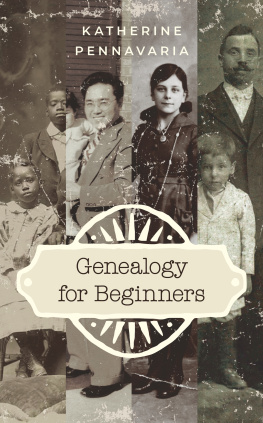

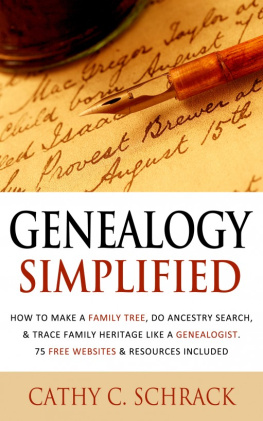

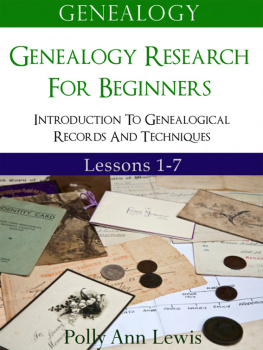
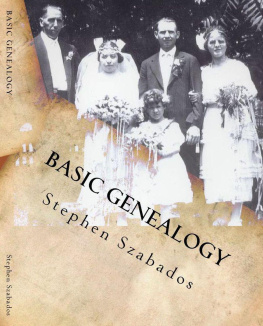
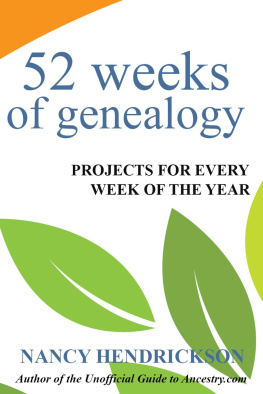
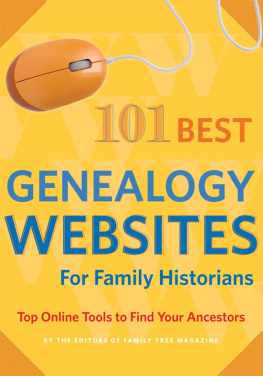
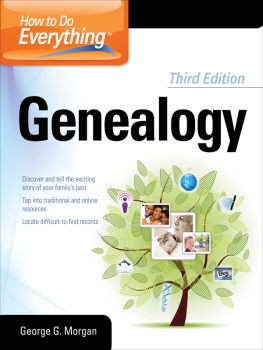
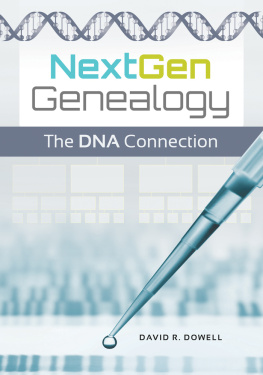
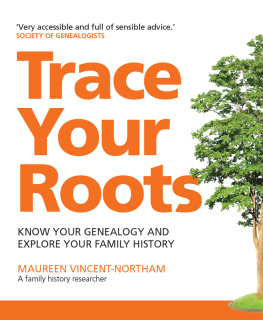
 The paper used in this publication meets the minimum requirements of American National Standard for Information Sciences Permanence of Paper for Printed Library Materials, ANSI/NISO Z39.48-1992.
The paper used in this publication meets the minimum requirements of American National Standard for Information Sciences Permanence of Paper for Printed Library Materials, ANSI/NISO Z39.48-1992.